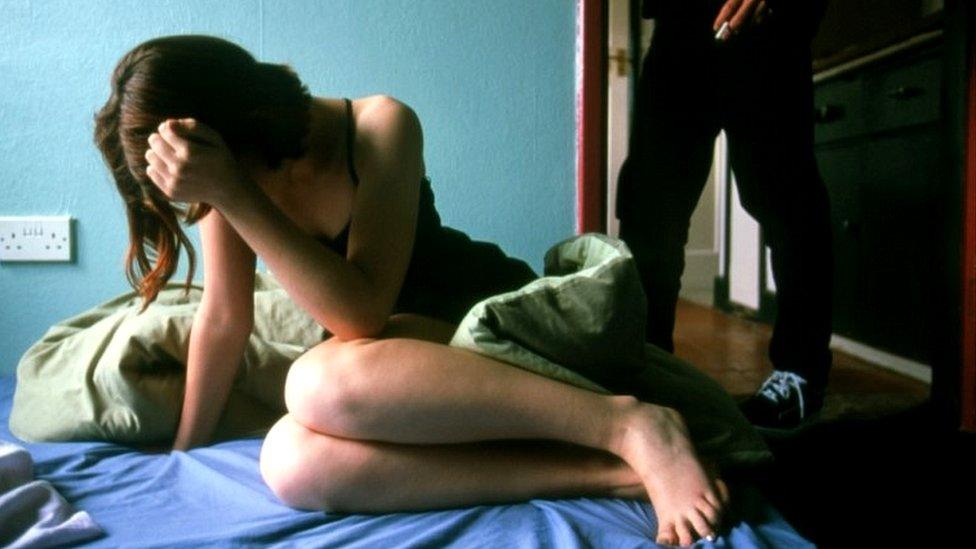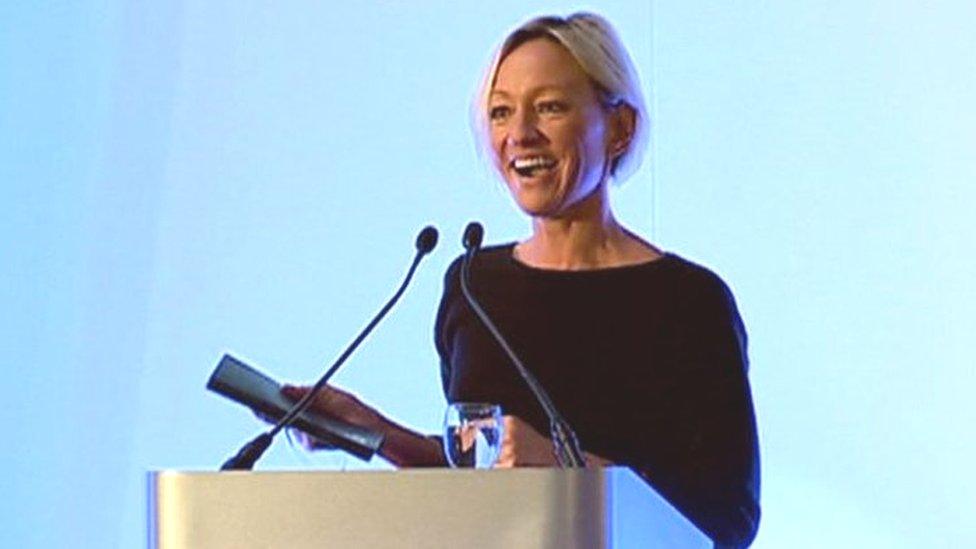Domestic Abuse Bill to become law after stalker plans defeated
- Published

The Domestic Abuse Bill is set to become law, after peers backed down in a dispute over how best to monitor stalkers and abusers.
The Lords has been pressing for legal changes to ensure offenders are automatically monitored under an existing police database.
The government has rejected this, arguing changing monitoring rules would be more effective.
With time to pass the bill running out, peers withdrew the demand on Tuesday.
The bill - which only applies to England and Wales - aims to strengthen rules surrounding controlling or coercive behaviour, target revenge porn and end the "rough sex defence" in court.
It also recognises children as victims of domestic abuse.
The House of Lords approved the bill just days before the parliamentary session is due to end on Thursday.
Peers had wanted to create a new category of offender to ensure stalkers are managed under multiagency public protection arrangements (Mappa), between police and probation services.
But the amendment, which has previously been defeated twice by MPs, was again rejected by the government.
Home Office Minister Baroness Williams of Trafford told peers that improving "how Mappa operates on the ground" was more important.
Instead of supporting changes to legislation, she pledged to widen the binding guidance governing Mappa to ensure stalkers who pose a threat are covered.
'Living in fear'
But Labour's Baroness Royall of Blaisdon, who had originally tabled the amendment, said there was "no proper direction" on how the guidance should be used.
She also argued that spending cuts had led to a situation where authorities "cannot use their professional judgment" because "the resources are so stretched".
She added that the current system "is not working" and "leads to thousands of women living in fear and hundreds murdered".
Her comments were echoed by Liberal Democrat peer Baroness Brinton, who said: "We have said repeatedly the consequences of these fixated, obsessive, serial and high-risk perpetrators who escalate their behaviour far too often results in serious violence and murder.
"At the end of the day, lives depend on the government and everyone in the police and criminal justice system getting it right."
Contact centres
Peers had previously defeated the government four times over changes to the bill including an effort to strengthen standards in child contact centres - neutral meeting places for children and parents who are involved in a difficult break up.
However, they accepted a series of compromises from the government on this issue to ensure the bill passed.
Crossbench peer Baroness Finlay of Llandaff said she was disappointed her amendment on child contact centres had not been accepted by the government but added she didn't want to "jeopardise" the bill.
Related topics
- Published17 June 2020

- Published21 April 2021

- Published25 March 2021
